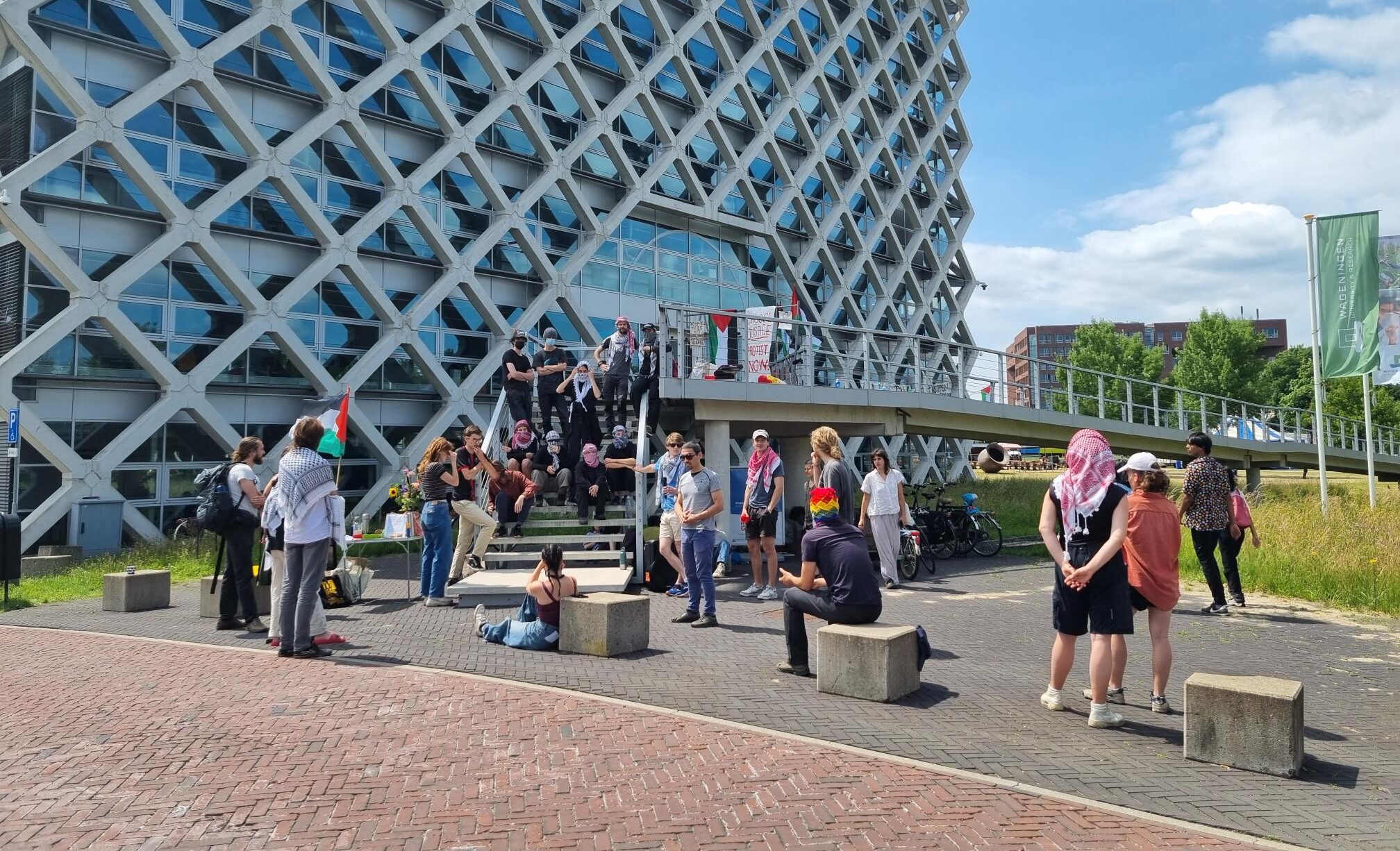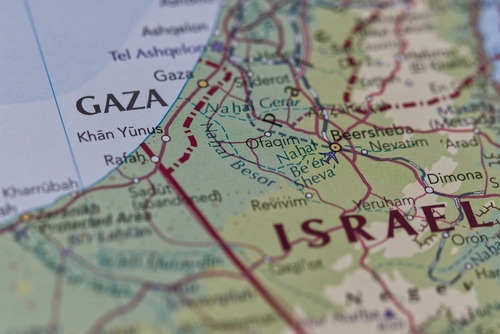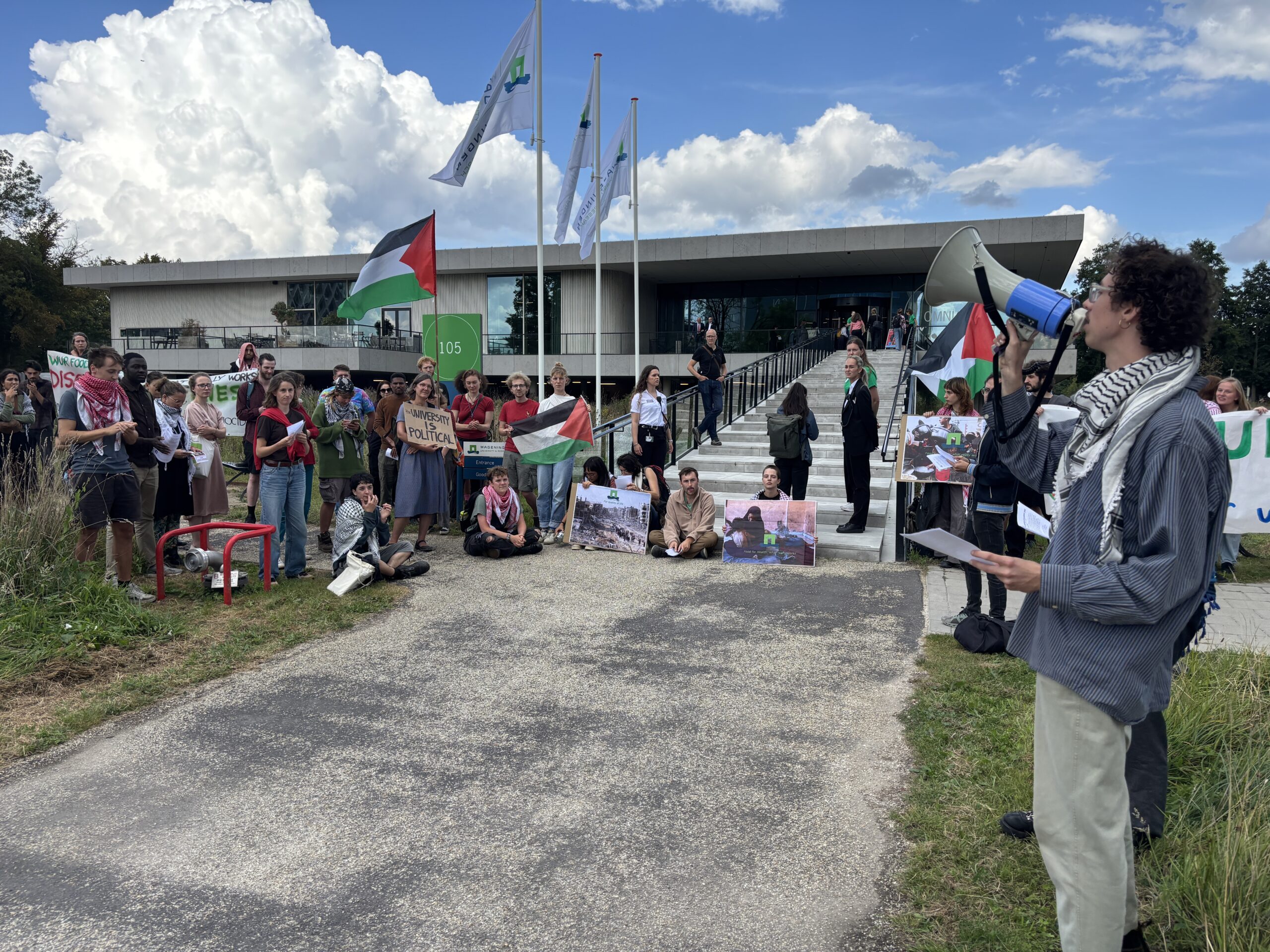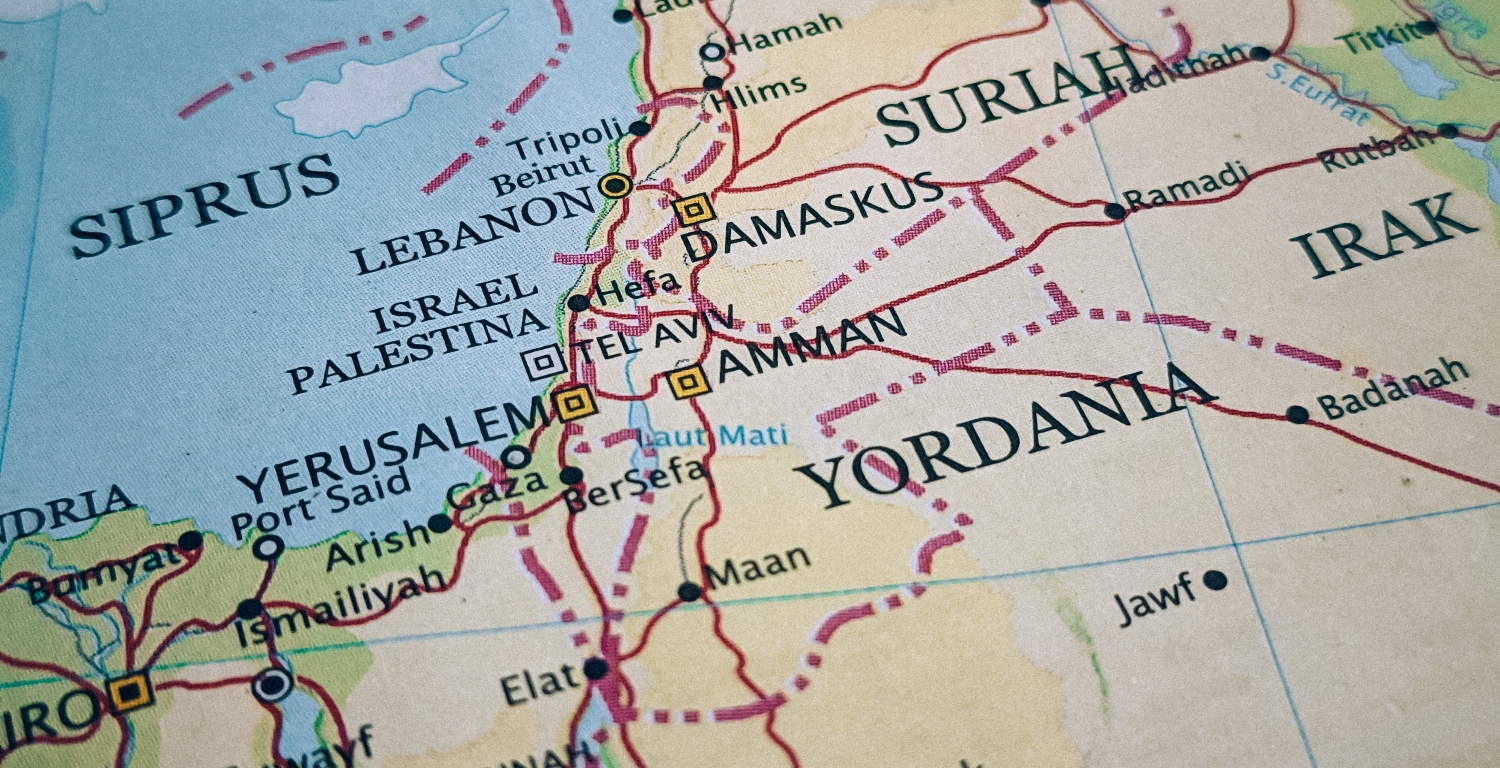Pro-Palestine activists occupied both entrances to the Atlas building, where the Executive Board is located, on Thursday morning. They blocked access with man-sized fences on the footbridge and at the side entrance to the bicycle parking facility.
This story will be updated throughout the day. Scroll down for the latest updates.
The action group Wageningen4Palestine criticizes the fact that the Executive Board is ignoring their calls and demands. ‘Since the start of our campaign, we have entered into dialogue with the Executive Board, submitted petitions, organized protests, held educational events, and set up a camp that lasted six months. Hundreds of students and staff have since collectively and urgently demanded that WUR cut its institutional ties with Israel. While most universities have now at least set up ethics committees and partially severed ties on that basis, WUR remains stubbornly passive.’
Escalating
‘Because the Board refuses to respond to our calls and rejects further dialogue, we have no choice but to escalate our actions’, say the activists. That is why they are occupying Atlas today. At the beginning of the footbridge, there are groups of staff who cannot get to their workplace.
‘The board may not feel responsible towards the Palestinian people, but students and staff at this university do. We will not tolerate business as usual as long as the Board avoids its responsibility and ignores the demands of the academic community’, the activists say in their statement.
Unlike previous protests, almost all activists between the fences are now wearing keffiyehs or face masks to cover their faces. ‘We don’t do that during less disruptive protests, but this is a more risky protest’, says spokesperson Mat. ‘Some feel they have to do this for their own safety.’
The action began around 6:30 this morning.
UPDATE 3 p.m.
Unpleasant, but understandable
Three employees from Corporate Communications & Marketing who normally work in Atlas are working from an Orion room today. They are willing to share their opinions about the protest, but prefer to remain anonymous.
‘I find today’s blockade difficult because I can’t access the items I really need today’, says one of them. ‘It hinders my work. But I understand the protest. It’s good to draw attention to what’s happening in Gaza.’ One of her colleagues finds it particularly annoying. ‘A very loud but small group is disrupting a lot of order. I respect the right to demonstrate and I see that it is happening in a peaceful manner. But I think they are in the wrong place here and would be better off demonstrating in The Hague.’
A third colleague supports the protest: ‘I am happy to make room for them. I do hope that it continues to happen in a peaceful and safe manner. As long as that remains the case, I am actually glad that they are standing up for this. It also makes us think.’ To what extent does she agree with the activists’ demands? ‘I think an ethics committee that critically reviews all collaborations would be a good fit at WUR. Some other universities have already terminated collaborations.’
The colleague who is critical of the blockade of Atlas agrees. ‘An ethics committee can never do any harm, of course. You want everyone to be treated equally. You can assess that with such a committee.’
University: no change of course
‘This is not the place or the way to demonstrate,’ says university spokesperson Vincent Koperdraat in response to the blockade. ‘This disrupts the primary process, and that’s not okay.’ Substantive discussions with the activists are not planned for the time being, he says. ‘Last year, we had thirteen substantive discussions with people from this group. It always ended up the same way. At a certain point, we concluded that there was little point in repeating ourselves.’
If a discussion does take place, it will mainly be about the form, Koperdraat says. ‘We will not give in to blackmail – blocking or occupying buildings is a form of blackmail. We have no problem with other forms of protest: we value the right to demonstrate highly.’
Meanwhile, other universities are taking action, for example by ruling out new collaborations, severing ties and/or setting up ethics committees. Koperdraat: ‘That doesn’t mean we have to do the same. We have our Principles of Collaboration. You can think what you like about them (and people do, ed.), but that’s the system we use. Individual scientists can use them to determine for themselves what is ethical and what is not. If, for example, we as a university sever all ties with Israel, scientists will no longer have the freedom to collaborate on an individual basis with institutes or individuals whom they believe do comply with those ethical principles.’
So there is no question of an ethics committee for the time being, says Koperdraat. ‘However, there is a helpdesk for people who have questions about whether a collaboration complies with the Principles of Collaboration. So if you need help, there are options available. What is happening in Gaza is terrible,’ he concludes. ‘In that respect, we fully agree with the activists. But we differ in our opinions about what WUR should do about it.’
Update Friday, 20 June:
Atlas is open again today; the activists left on Thursday evening.
Translated with DeepL.com

 De blokkade van Atlas rond het middaguur. Foto Resource
De blokkade van Atlas rond het middaguur. Foto Resource 

